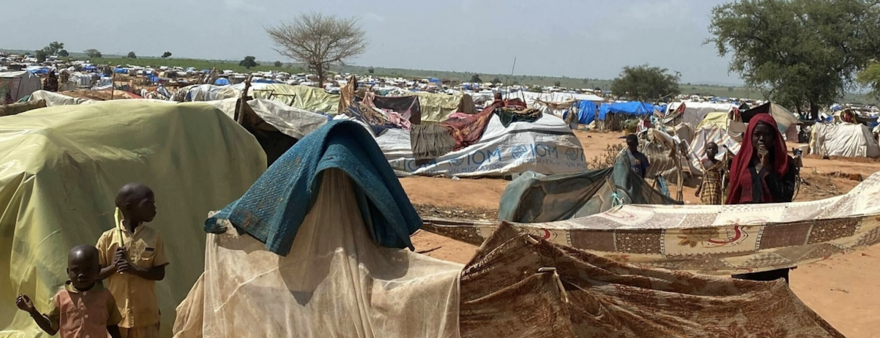The dire situation of those who were displaced from Abuja camp in North Darfur State is worsening as approximately 40 displaced families endure challenging humanitarian conditions.
Fleeing clashes in El Fasher in the past few months, they sought refuge at the Ali Ibn Abi Talib School but have been unable to return to the Abuja camp due to escalating security chaos.
Maryam Mohammed Hussein, a displaced woman, told Radio Tamazuj Monday that they are facing severe challenges in the camp, including food shortages, inadequate shelter tents, and a lack of blankets—exacerbated during the winter, affecting vulnerable groups like children and the elderly.
Halima Adam, a 35-year-old internally displaced person (IDP), emphasized the harsh living conditions in shelter centres, particularly the scarcity of food impacting those with special needs, children, and the elderly.
Halima urgently appealed to humanitarian organizations to provide aid, including food and blankets, for those who fled the Abuja camp as they are currently exposed to the elements in the open centre.
Aza Yusuf, a 70-year-old, expressed dissatisfaction with the challenging humanitarian conditions faced since leaving the Abuja camp.
Recounting the hardships endured during the last Ramadan due to repeated clashes in El Fasher, particularly in Abuja, she highlighted the difficult conditions experienced by displaced families in terms of inadequate food and substandard living conditions.
Presently, El Fasher has over 86 shelter centres accommodating thousands of individuals displaced by the ongoing war, with many fleeing various areas affected by conflicts between the Sudanese army and the Rapid Support Forces since mid-April. Complaints persist regarding insufficient food and medicine in these shelters.




